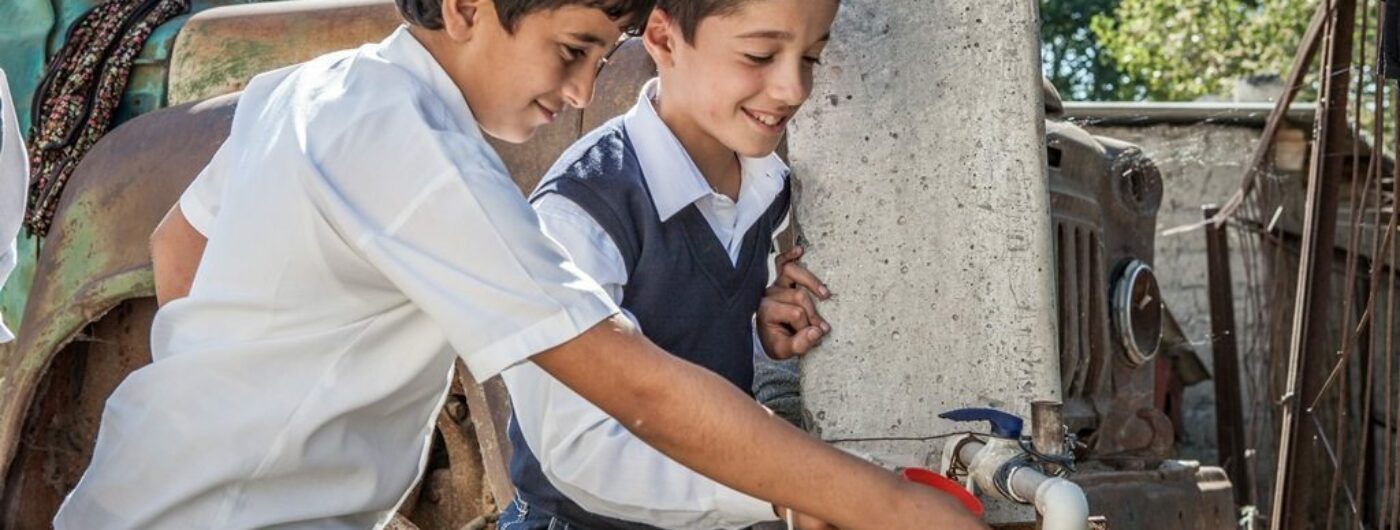
UfM on World Water Day: addressing water scarcity in the Mediterranean
Barcelona, 22 March 2017 – The Mediterranean region is one of the areas in the world most vulnerable to climate change as well as one of the most impacted by human water demand, where more than 180 million people are affected by water poverty and an additional 60 million face water stress to some degree. These figures highlight the scale of the challenge faced by the countries in the region. On World Water Day the UfM Secretariat emphasises the crucial need to continue enhancing regional cooperation to successfully address this issue of growing concern. By promoting collaborative work in the definition of a potential UfM water agenda, acting as a platform for cooperation and dialogue through the UfM Water Expert Group, as well as advancing the implementation of a number of UfM-labelled projects in the water sector, the Secretariat is meeting its foundational mandate of making water a priority sector.
In line with this year’s focus on wastewater, it is timely to recall that several of these challenges refer directly to water resource depletion and urban wastewater management in a region where the urban population has tripled in half a century. The UfM is helping to address this challenge by driving forward a renewed urban development agenda in which these issues play a central role.
Against this backdrop, water reuse and nonconventional water resources offer a great potential as a means to combat water scarcity, bearing in mind that there are already countries in the region which are close to 100% exploitation of natural renewable freshwater resources according to the Water Exploitation Index of the European Environmental Agency (EEA) and that current figures for reuse of wastewater in the Mediterranean show that there is great potential for expanding this usage.
The UfM embodies the spirit and added value of regional cooperation and partnership and is currently working on 21 sustainable development initiatives, eight of which are specifically water-related. Some of the most representative examples of these projects include:
– The Integrated Programme for the protection of Lake Bizerte against pollution, launched in Tunisia in November 2016, which is currently helping to improve the environmental and socio-economic conditions of more than 400,000 people. With an investment of €90 million provided by the EIB, the EBRD, the EU and the Tunisian Government, the project is integrated in the Euro-Mediterranean Horizon 2020 for a cleaner Mediterranean Sea and is expected to last until 2022.
– The Desalination Facility for the Gaza Strip Project, which will help to supply drinking water to more than 1.8 million inhabitants, thereby presenting a sustainable solution for the chronic and longstanding water shortage in the Gaza Strip. The project’s technical feasibility and financial studies have been completed and the UfM Secretariat is working closely with the Government of Palestine to help secure the engagement of a number of international financial institutions and international organisations for the implementation of the project to become a reality on the ground.
In line with the 2030 UN Agenda for Sustainable Development, the UfM Secretariat joins the World Water Day celebration and congratulates all stakeholders and partners around the Mediterranean for their efforts in ensuring water access for all, optimal use of resources and more sustainable economies. It further encourages the reinforcement of synergies and collaborative initiatives to promote more successful and life-changing projects for thousands of people each year.
More information
Official launch of the Integrated Programme for Protection of the Lake Bizerte against Pollution.
Najwa Bourawi, President of the Association for the Protection of the Environment and Sustainable Development of Bizerte (APEDDUB), speaks about the positive impact that the depollution of Lake Bizerte will have on the socio-economic development of region

